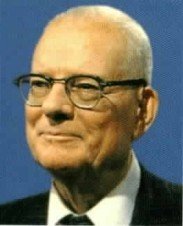Every business is made up of systems and processes. In the typical small to mid-size company, people are the most important component of those business systems. When a team of people is formed to manage a specific system or process (e.g., production, marketing, accounting, etc.), there is an opportunity for superior results. The whole can be greater than the sum of its parts (Aristotle).

A team is a group of people working together to accomplish an objective. In the Box Theory™ methodology, teams operate within business systems to accomplish the strategy and goals of the organization. Teams have an advantage of combined resources, experience, talents, ideas, and energy. Quote: Teamwork is essential in any great human endeavor (John Maxwell, “The 17 Indisputable Laws of Teamwork”).
Principles of Teamwork
When putting together business teams, consider the following seven principles:
- Team Leader/System Owner – Team leaders communicate vision, purpose, and expectations, and provide members the necessary knowledge and skills. The team leader is an example, mentor, teacher, and motivator—open to the ideas and input of others. To the extent possible, good leaders empower team members with trust, respect, independence, flexibility, freedom to fail, and responsibility for personal results. They avoid the tendency to dominate or interfere, which can reduce efficiency and dampen morale. Team leaders are accountable for team performance and system results. Quote: The basic building block of good team-building is for a leader to promote the feeling that every person is unique and adds value (Author Unknown).
- Culture of Teamwork – In a teamwork environment, people believe that thinking, planning, decisions, and actions are better when done cooperatively. “None of us individually is as good as all of us working together.” Team members learn from and help one another. They face the brutal facts about current performance, pursue the best over the easiest, focus energy on the right things, do what they say they are going to do, and strive to learn, grow and improve every day. In a culture of teamwork, people are dissatisfied with the status-quo and have a strong passion for contributing, competing, and “winning.” All for one and one for all, they succeed or fail together. Quote: The ultimate distinction setting a Results Rule! culture apart from all others is personal and organizational accountability (Randy Pennington, “Results Rule!”).
- Team Size – Depending on the task, team size will vary. However, studies have shown that the ideal team is small—not more than five to six members—“especially when coordination and motivation are important.” A team name (e.g. sales team or HR team) creates identity, pride, and unity of purpose. The team has everyone it needs and no one it doesn’t need to accomplish its objective as efficiently as possible. It is viewed by others as a single entity. Team members work where they provide the most value and excel at their specific job duties. The strength of the team is impacted by its weakest link. Bad attitudes kill team spirit and performance. The best teams have good chemistry and often one or two strong individuals who “make things happen.” Quote: Individual commitment to a group effort—that is what makes a team work, a company work, a society work, a civilization work (Vince Lombardi).
- Team Goals – The team has clearly defined and shared goals. Members are committed to excellence, accept and learn from mistakes, and seek continuous improvement of people, products, and processes. All team members understand the company strategy and goals and how they specifically contribute to the success of the organization. Team needs or goals come before individual needs and goals; members are willing to sacrifice when required. Creative thinking, innovative solutions, and new ideas are valued. People are rewarded for taking reasonable risks, stretching to make improvements, or even taking on a BHAG. The team is committed to paying the price of success. Quote: Teamwork allows common people to attain uncommon results (Andrew Carnegie).
- Improvement Cycle – In a business-system cycle, results are continually communicated back to the team. The more frequent feedback is received, the better the results. Ideally, the team always knows how they are doing in relation to the goal; they know what is working and what isn’t working. Adjustments are made in real-time. Regular feedback encourages innovation and improvement. System Improvement Workshops are also a great way to establish a pattern of team-driven improvement. Quote: The greatest danger a team faces isn’t that it won’t become successful, but that it will, and then cease to improve (Mark Sanborn).
- Cross-Training of Team Members – Not every position on a team or step in a process requires equal time from team members, and occasionally a person may be absent. It is beneficial to help people become proficient at multiple roles on the team. Cross-trained team members can cover for each other, or remove a bottleneck if demand spikes. Rotating people also provides a variety of work-tasks throughout the day, thus reducing boredom or fatigue. Quote: Overcoming barriers to performance is how groups become teams (Author Unknown).
- Team-building – Good teams are well-trained and coached. Business Improvement Workshops can be very effective to enhance processes and simultaneously strengthen team members. Put fun into the meeting agenda with team member spotlights and humorous openers/icebreakers. Bonding of team members can also occur with social activities, team T-shirts or hats, pizza Fridays, and so forth. Healthy competition, achieving a personal best, or breaking a company record will spur enthusiasm and individual growth. Compensation, bonuses, and rewards should recognize team results as well as individual contribution and achievement. Celebrate victories and give public recognition whenever possible. Investing in teams pays big dividends. You are only limited by your imagination. Quote: The strength of the team is each individual member… the strength of each member is the team (Phil Jackson, Coach Chicago Bulls).
It Begins with Your Leadership
Creating good business systems, and first-rate teams to run them, is the essential role of owners and managers. As Michael Jordon once said, Talent wins games, but teamwork and intelligence win championships.
Never doubt that a small group of thoughtful, committed people can change the world, indeed, it’s the only thing that ever has (Ayn Rand).







